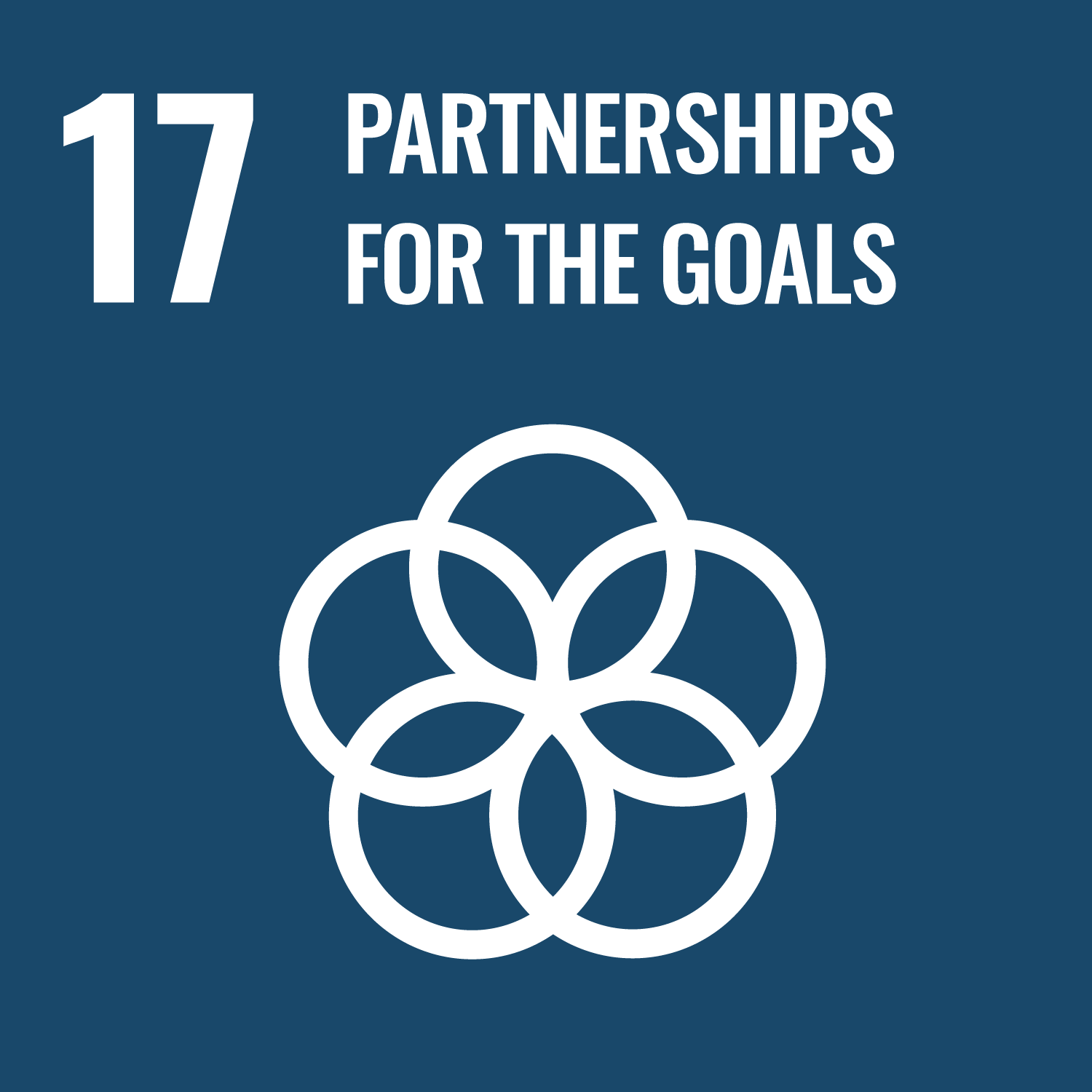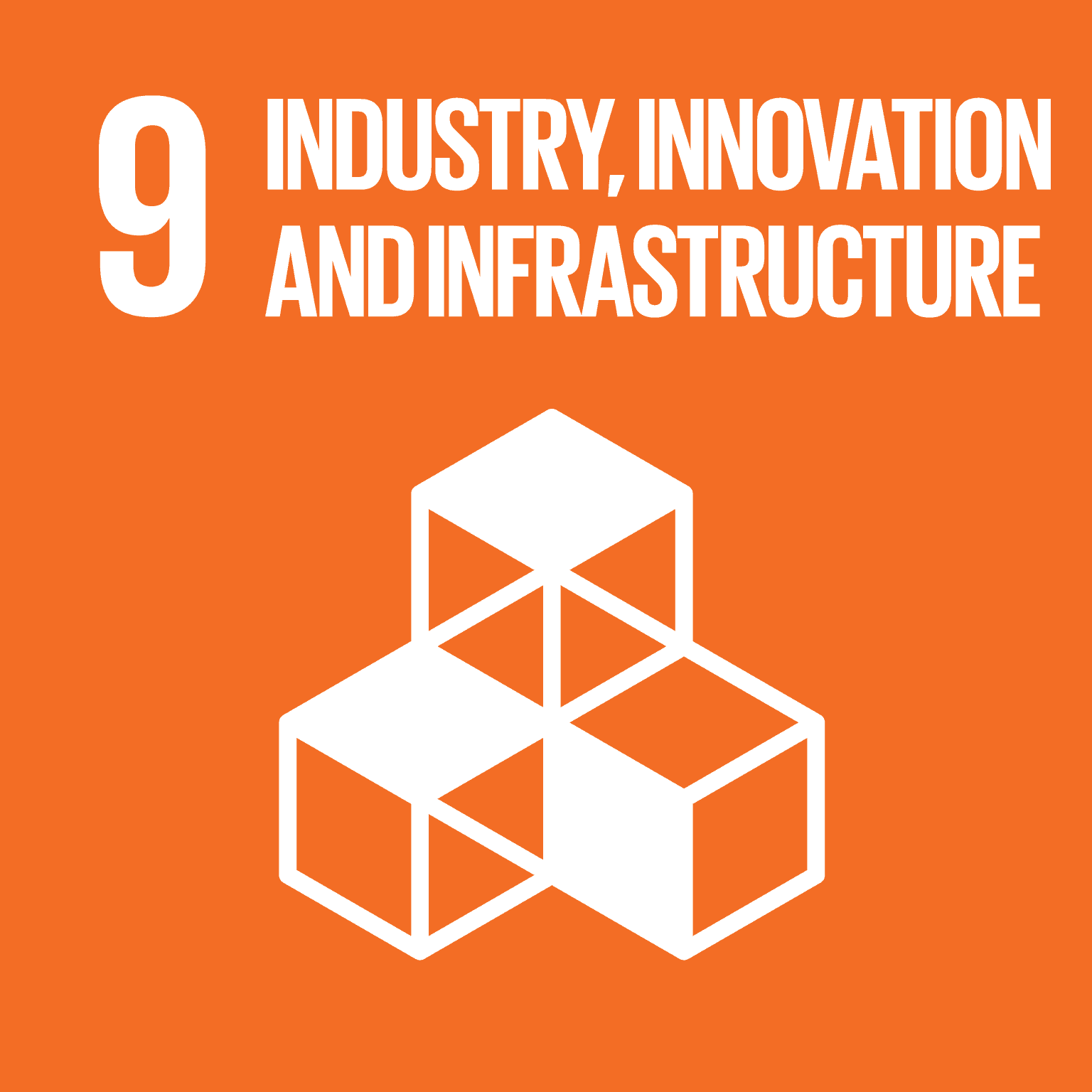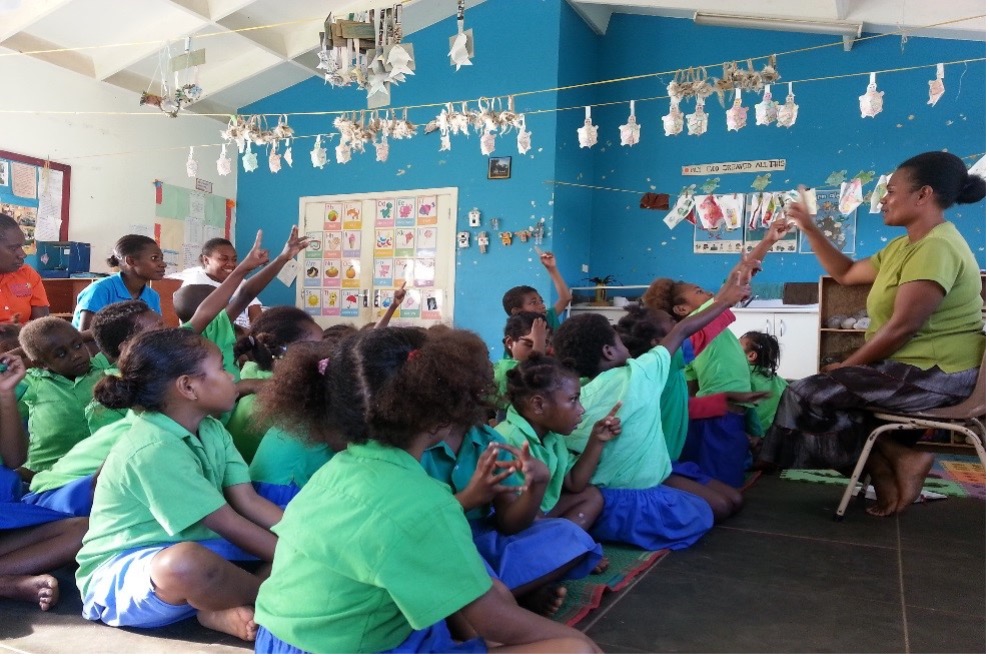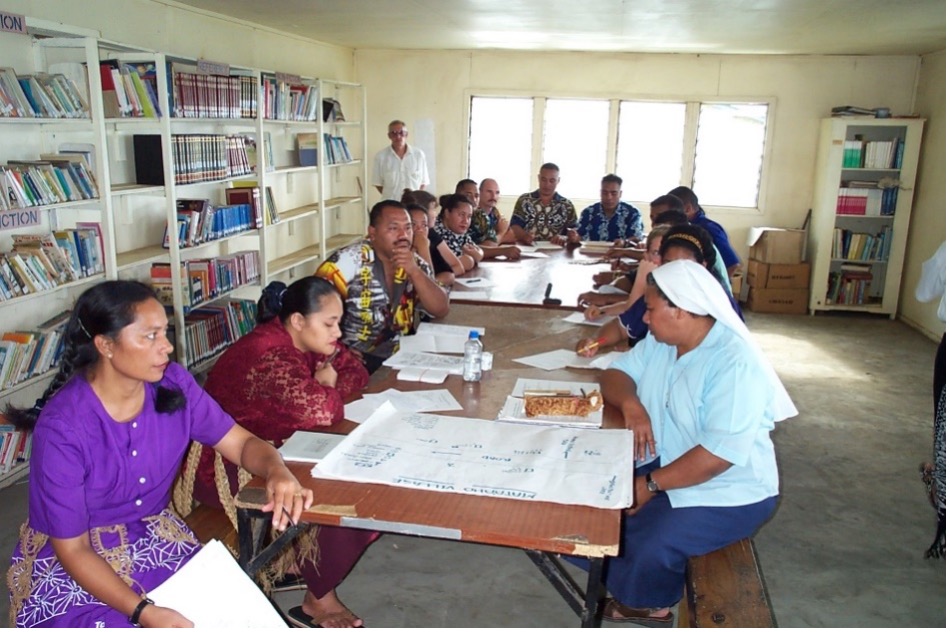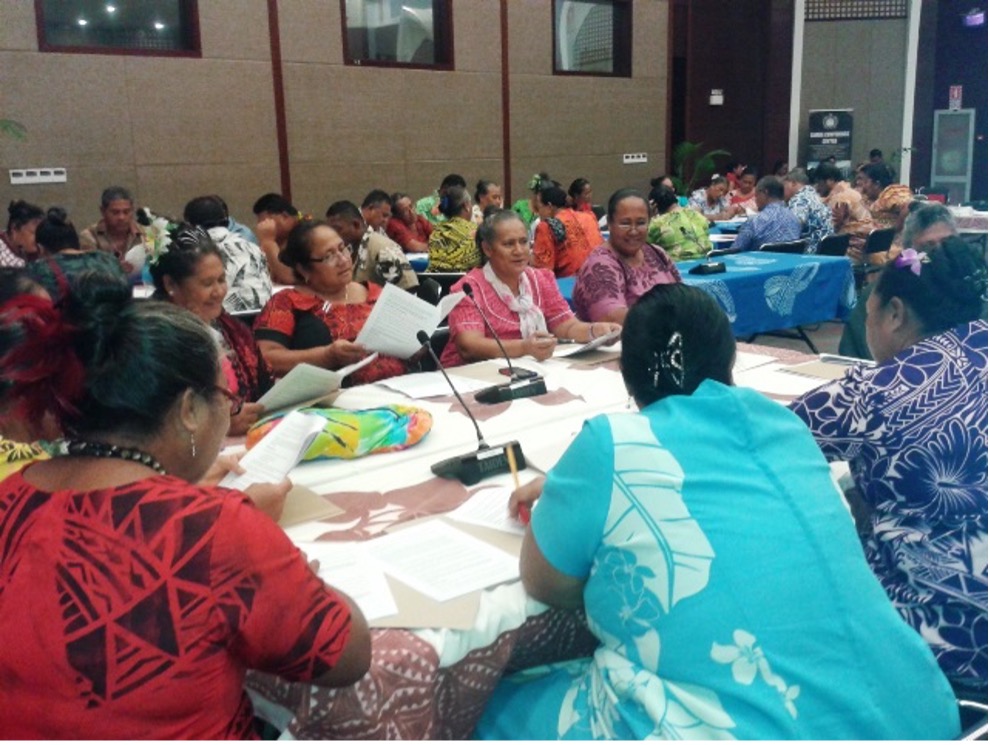Synergies of Education for Sustainable Development and Global Citizenship Education
Building the capacities of teachers and parents to support SDG targets in communities in the Pacific region
Challenges
Overexploitation of natural resources and excessive consumption is damaging the health and self-sustainability of the Small Island Developing States (SIDS). In these countries, there is a need for education to create and transmit knowledge, skills, attitudes and values that establish a lifestyle that is respectful of nature and promotes a sustainable future.
UNESCO’s efforts to promote education for sustainable development received a boost with the adoption of the Agenda 2030 for Sustainable Development. Education for Sustainable Development integrates issues around climate change, biodiversity and sustainable consumption into core subjects like languages, mathematics, sciences and involves modifying the teaching-learning process to take learning from life actions.
Towards a Solution
The Education for Sustainable Development in the Pacific programme will bring together nine Pacific Small Island Developing States for SIDS-SIDS knowledge exchanges in 2021. Supported by the Japan Funds-in-Trust for UNESCO, the project fosters culturally appropriate teaching and learning in the nine countries, namely, Fiji, Samoa, Solomon Islands, the Republic of the Marshall Islands, Nauru, Niue, Tonga, Tuvalu and Vanuatu. The programme envisages that the knowledge, skills, attitudes and values necessary to address sustainable development challenges among teachers and parents are prerequisites if students are to be guided to acquire them.
The programme builds the capacities of teachers and parents and equips them with resources to support SDG targets in their communities, including the targets on education (4.7), on awareness for sustainable lifestyle (12.8), on climate change (13.3) and on South-South and multilateral cooperation (17.6). The project further contributes to the Small Island Developing States Accelerated Modalities of Action (SAMOA) Pathway Articles 27(a), 69, 75(a), 82, 108 and 108(i). These targets and articles concern environmental integrity, economic viability and just society.
This programme builds on two previous regional projects. The first regional project in 2015-2016, funded by the Malaysia Fund-in-Trust for UNESCO, successfully laid a foundation for the identification and integration of non-cognitive skills into national curricula. The second regional project, under UNESCO’s regular programme during 2018-2019, organized 15 Pacific Small Island Developing States into three multi-country groups – Melanesia, Micronesia and Polynesia – and brought curriculum planners and teacher trainers together for joint training and SIDS-SIDS knowledge exchange.
For the current programme, UNESCO in the Pacific is partnering with the participating countries’ ministries of education, which are responsible for education policy and planning, and other institutions, including regional, environmental and community-based organizations. The programme is delivering education services for the integration of education for sustainable development in teaching and learning. Resources produced under the programme are based on local information and contexts to increase understanding and the perceived utility of the learning materials produced for training teachers and parents. Dialogue among curriculum developers and teacher trainers in the programme countries and at various levels has helped avoid duplication of efforts and is generating an understanding of the principles of sustainable living, gaining a concurrence of stakeholders. Resources being developed are keeping future needs in view and for sustainability are accompanied by training of trainers. The project objective for early childhood care and education and for primary, secondary and tertiary levels is to design Education for Sustainable Development learning and professional development materials for stakeholders. The project supports the professional capacity building of teachers, teacher educators, school and centre administrators and curriculum planners of the ministries of education by introducing Education for Sustainable Development approaches and learning tools. Key lessons learned from one another in each country as well as across the project countries will be documented.
The outcomes of this project include the identification of prioritized skills for development in early childhood care and education, as well as in the primary, secondary and tertiary levels of education. The resources developed to address sustainability issues and concepts. These resources are meant to support learners to acquire skills in culturally consistent ways. Context-specificity and bilingualism have been made part of design intentionally for extended non-formal learning. Drawing on one another’s know-how, all outputs are Small Island Developing States-specific and bilingual so that teachers can enhance the understanding of education for sustainable development in local languages and to allow greater collaboration with families and communities.
The programme was in the process of being implemented in the Republic of the Marshall Islands and Samoa when the COVID-19 pandemic spread. The methodology had to be tailored to address the peculiarity of the times and to overcome challenges posed by border closures and restrictions on international travel that initially seriously affected SIDS-SIDS knowledge exchanges. The situation contributed to the adoption of digital communications and the production of teaching and learning resources in multimedia formats. The shift from in-situ to multi-media-based capacity development actually facilitated engagement between the participating SIDS and the university of the South Pacific and other countries of the global South where similar efforts are underway.
By early 2021, this programme is expected to have raised ‘champions’ of education for sustainable development in communities that are willing to actively engage in supporting the replication and practice of change. With the help of these champions, the results from this project will be used to organize further SIDS-SIDS knowledge exchanges on the importance of non-cognitive skills within the framework of the Pacific Regional Education Framework from 2021-2023.
Contact Information
Ms. Patience Awopegba, Programme Specialist for Education, UNESCO
Countries involved
Fiji, Marshall Islands, Samoa, Solomon Islands, Tonga, Tuvalu, Vanuatu
Implementing Entities
Ministries of Education in the seven SIDS of the Pacific, UNESCO office for the Pacific States, University of the South Pacific, Samoa Conservation Society
Project Status
Completed
Project Period
2018 - 2021
Primary SDG
04 - Quality Education
Secondary SDGs
12 - Responsible Consumption and Production, 13 - Climate Action, 17 - Partnerships for the Goals
Primary SDG Targets
4.7Similar Solutions
